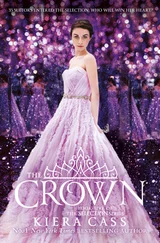Thomas Cook - The Crime of Julian Wells
Здесь есть возможность читать онлайн «Thomas Cook - The Crime of Julian Wells» весь текст электронной книги совершенно бесплатно (целиком полную версию без сокращений). В некоторых случаях можно слушать аудио, скачать через торрент в формате fb2 и присутствует краткое содержание. Год выпуска: 2012, ISBN: 2012, Издательство: Grove Press, Жанр: Криминальный детектив, на английском языке. Описание произведения, (предисловие) а так же отзывы посетителей доступны на портале библиотеки ЛибКат.
- Название:The Crime of Julian Wells
- Автор:
- Издательство:Grove Press
- Жанр:
- Год:2012
- ISBN:9780802194589
- Рейтинг книги:5 / 5. Голосов: 1
-
Избранное:Добавить в избранное
- Отзывы:
-
Ваша оценка:
- 100
- 1
- 2
- 3
- 4
- 5
The Crime of Julian Wells: краткое содержание, описание и аннотация
Предлагаем к чтению аннотацию, описание, краткое содержание или предисловие (зависит от того, что написал сам автор книги «The Crime of Julian Wells»). Если вы не нашли необходимую информацию о книге — напишите в комментариях, мы постараемся отыскать её.
The Crime of Julian Wells — читать онлайн бесплатно полную книгу (весь текст) целиком
Ниже представлен текст книги, разбитый по страницам. Система сохранения места последней прочитанной страницы, позволяет с удобством читать онлайн бесплатно книгу «The Crime of Julian Wells», без необходимости каждый раз заново искать на чём Вы остановились. Поставьте закладку, и сможете в любой момент перейти на страницу, на которой закончили чтение.
Интервал:
Закладка:
I considered how very dark this remark was, the notion that no love could withstand the inquiry of clear minds, love itself a clever deceiver.
“He thought we all dangled in a great web of illusion, didn’t he?” I asked.
Rene nodded.
“Illusions we had to have in order to be happy,” I added.
Rene stared at the tip of his cigarette for a moment, then looked up at me. “These he hid from you, his sad truths.”
A somewhat painful recognition hit me. “Perhaps he thought I was too soft to bear them.”
Rene smiled. “He said to me once, ‘It is not what you tell a friend but what you refrain from telling him that shows your love for him.’”
A single strand broke in the web that I had perhaps long dangled in.
“So Julian would deceive his friend,” I said. “For his own good.”
Rene shrugged, took a final puff of his cigarette. “So,” he said. “He is back now in Paris, the landlord.”
I looked at him quizzically.
“To Julian’s apartment,” Rene explained.
“Oh.”
Rene watched me darkly. “You do not want this key?” he asked. “Perhaps you do not wish to go through Julian’s things?”
“Why wouldn’t I?” I asked.
Rene shrugged. “In a man’s room, there are always secrets. I learned this in Algeria. Always secret things, and some of them, not so nice.”
I waved my hand. “I’m not afraid of anything I might find in Julian’s room. Besides, it’s the reason I came to Paris.”
Rene crushed out his cigarette like a man who’d given his prisoner one last opportunity to avoid a grim fate. “Okay,” he said. “You have made your choice.”
“But, you know, at that moment, I wasn’t sure I truly wanted to go to Julian’s room or go through his things,” I confessed to Loretta when I called her that same night, recounted my conversations with Eduardo and the one I subsequently had with Rene, his final warning, all of it oddly disturbing.
“And yet, at the same time, I can’t stop myself from taking a look inside Julian’s apartment,” I added. “I see him in that boat, and that compelling urge comes over me again, the need to stop him, to find out if there was some way I could have stopped him.”
“You’re like one of those obsessed detectives searching through a cold-case folder,” Loretta said. “Only with you, the file you’re looking through has Julian’s name written on it.”
“Yes,” I said. “That’s exactly how I feel. But all this talk of deception, of hiding things from his friends, it’s very disquieting, Loretta.” I smiled, but edgily. “In a thriller it would be others who are trying to keep me from finding things out. They’d be shooting at me or trying to run me down in a car. But in this case, it seems to be Julian who’s covering his tracks.” I considered what I just said, then asked, “Did he ever mention a woman named Ilse Grese?”
“No,” Loretta said.
“He never wrote about her, but he seems to have been quite interested in her,” I said. “She was a guard at Ravensbruck. A very cruel one.”
Loretta said nothing, but I sensed a troubling ripple in her mind.
“He once talked about what he called ‘beautiful beasts,’” she said. “Women who used their beauty or their innocence to deceive people.”
I thought again of Julian’s interest in Ilse Grese and others like her, women who’d committed their crimes partly by means of clever disguises. In The Terror , he had digressed into a discussion of Charlotte Corday, the murderer of Marat, her certainty that by killing one man she had saved a hundred thousand. He’d made similar points about Mata Hari in that same book, with lengthy discourses on women as revolutionaries, assassins, and spies-in every case, deceptive women. Women who had hidden their true motives, often behind masks of beauty, but sometimes behind masks of kindness, simplicity, innocence. Women who, for all their evil, appeared to be no more dangerous than a. .
The name that suddenly popped into my mind stopped me cold.
Marisol .
15
It struck me as quite strange that late in the night when I thought of Marisol again, it was not Argentina that came to mind but a scene in The Terror , one I later looked up to make sure I’d remembered it correctly.
La Meffraye stands beside a forest woodshed, watching as a small boy skips playfully down a narrow, overgrown path. She is carrying a basket filled with baked goods, and as the boy draws near, she uncovers them just enough to release their fragrance into “the famished air.” She does not let go of the cloth, however, but holds it-“with fingers not yet talons”-ready to cover the cakes, and in that gesture make it plain that she will offer none of her sweets to this little boy. For a single, heart-stopping instant, the cloth remains as suspended as her goodness, for this is the first of La Meffraye’s potential victims. She wavers as the boy grows near, thinking now that it is only a game, that she will offer the sweet, but the boy will refuse. She convinces herself that this is true, and with that conviction she draws back the cloth and stretches out her hand and offers a sweet, which the boy immediately takes. At that moment, it is life itself that appears to betray La Meffraye by concealing the moral precipice even as she approaches it, a deception that continues until the instant of her fall.
The passage was primarily about La Meffraye, of course, but rereading it I found myself putting Julian in the place of the little boy she coaxes to his death. It was a nightmare scenario that had no doubt been generated by Loretta’s mention of “beautiful beasts” and probably would have tormented me all night had I not finally escaped into a book I’d been asked to review. To my great relief, it was something entirely the opposite of Julian’s dark tomes, sweet and light and at last uplifting, something completely forgettable, about a blind schoolteacher and a talking dog.
“When can we get into Julian’s apartment?” I asked Rene the next morning when we met at the tiny breakfast room where the hotel served its far from well-heeled guests weak coffee and an even worse bread.
It was the bread Rene eyed suspiciously. “I would not have thought it possible to find bad bread in Paris,” he said. “Perhaps it comes from England?” He stirred a coffee he also appeared to find far from his liking. “We can go today.”
I took a sip of coffee. “This morning?”
“If you wish,” Rene said.
“I presume Julian’s things are still there?”
“Where else would they be?” Rene said. “It is on Rue Saint-Denis, as you must know.” He smiled. “Julian was always near the prostitutes, but I don’t think he enjoyed their pleasures.”
“You obviously think he should have,” I said. “Why?”
Rene considered my question for a moment, then lifted his right hand and curled his fingers into a fist. “When you are with your wife, your children, even your friends, you are like this,” he said. “But when you are with a whore, you are like this.” He opened his hand like one freeing a caged bird. “You can say to her the truths you hide from others. That you hate your life, that your friends are stupid, that your work destroys you, that you are a joke to yourself.” A vague sorrow swam into his eyes. “Julian understood this. ‘With the fallen,’ he said to me once, ‘you can be fallen, too.’” He drew his fingers once again into a fist. “But even so, Julian was always like this, clenched, holding on to himself.”
Rene’s observation was like him, I thought, a tad over-the-top, and yet I couldn’t help but wonder if it truly might be the thing that Julian held within the tightly curled fist of himself that had finally drawn the blade across his veins.
Читать дальшеИнтервал:
Закладка:
Похожие книги на «The Crime of Julian Wells»
Представляем Вашему вниманию похожие книги на «The Crime of Julian Wells» списком для выбора. Мы отобрали схожую по названию и смыслу литературу в надежде предоставить читателям больше вариантов отыскать новые, интересные, ещё непрочитанные произведения.
Обсуждение, отзывы о книге «The Crime of Julian Wells» и просто собственные мнения читателей. Оставьте ваши комментарии, напишите, что Вы думаете о произведении, его смысле или главных героях. Укажите что конкретно понравилось, а что нет, и почему Вы так считаете.












